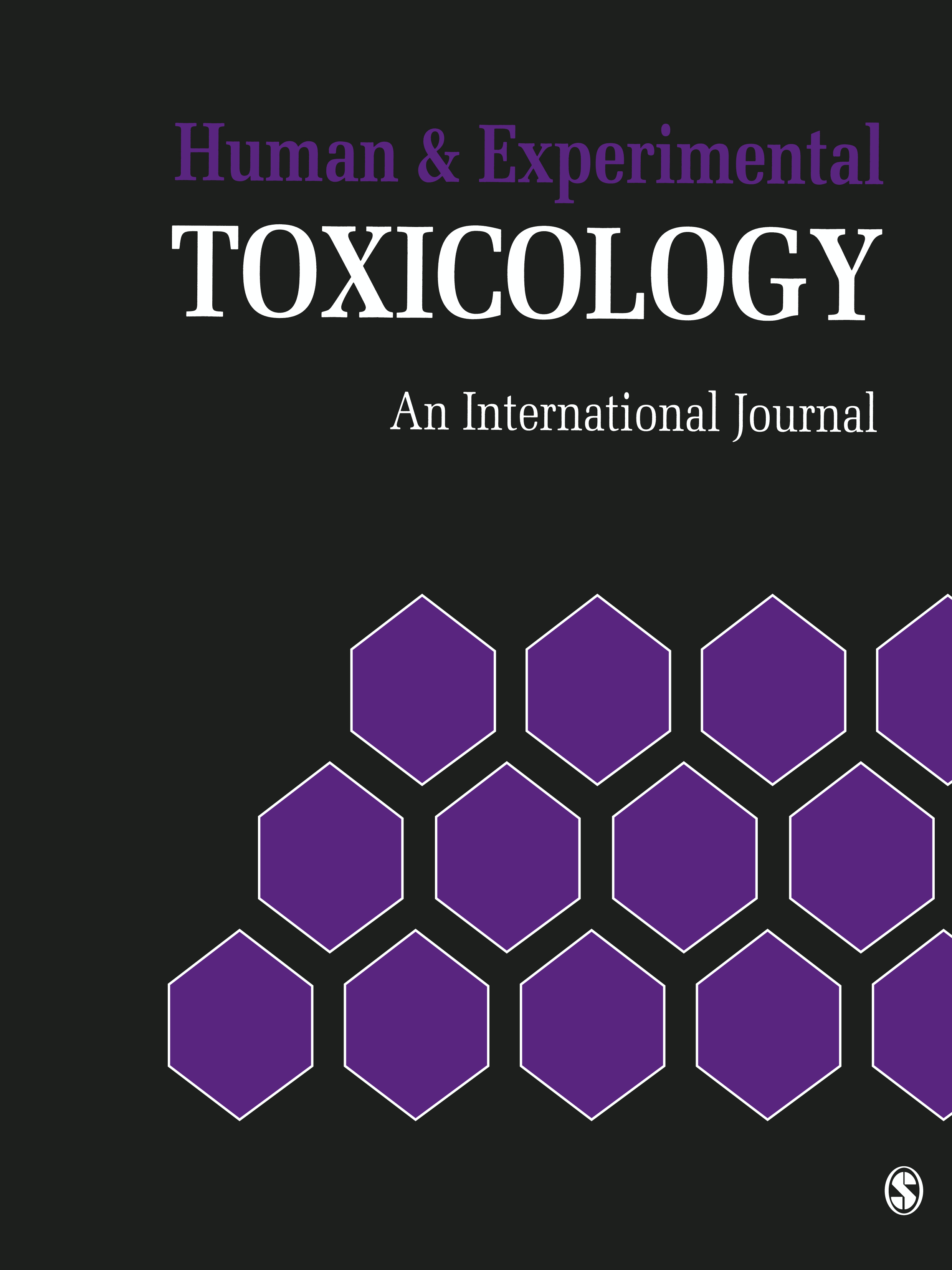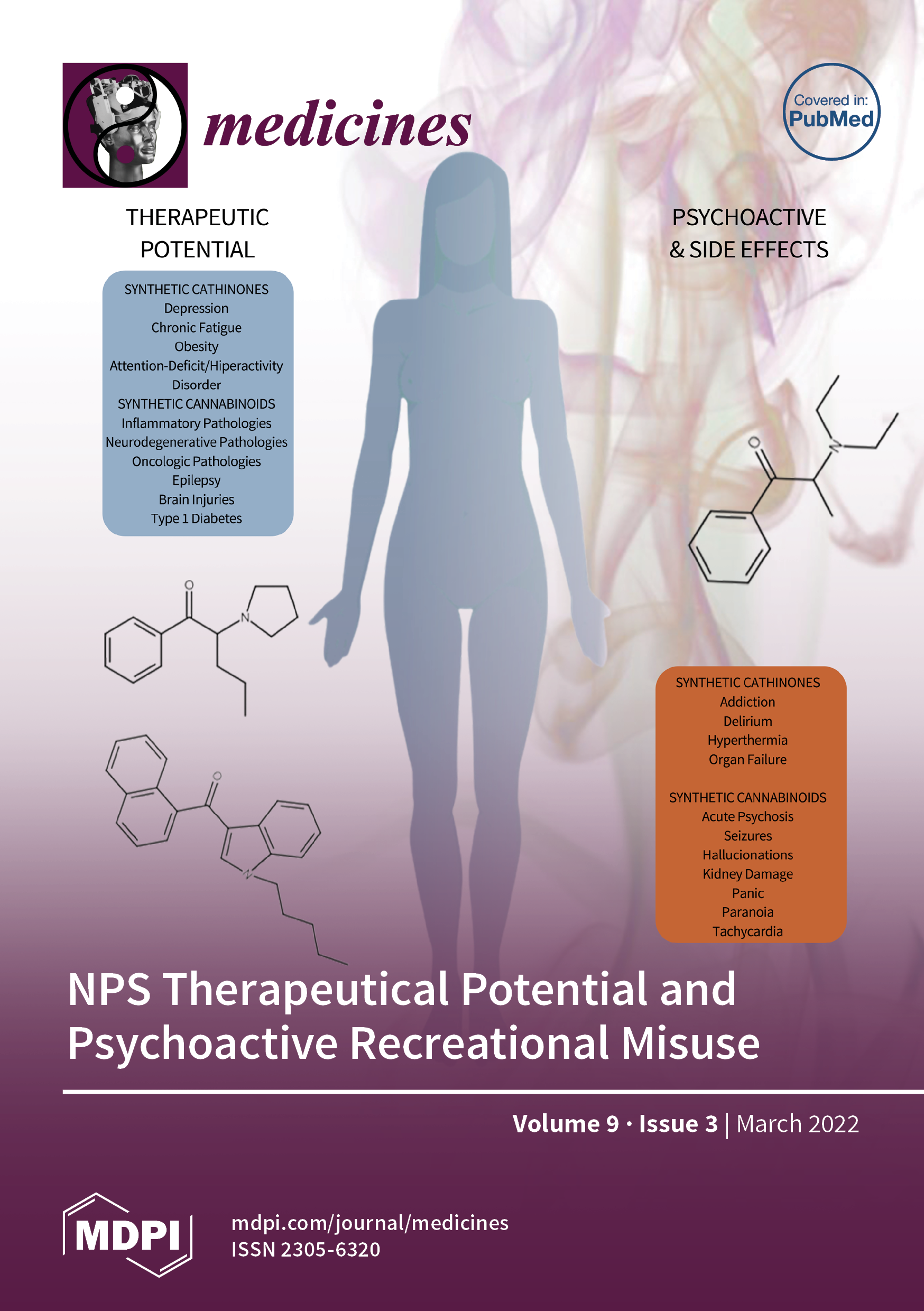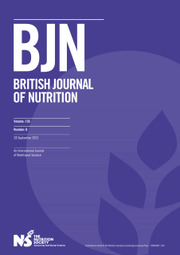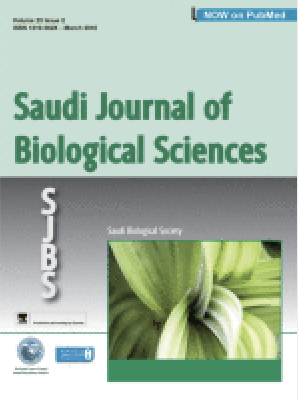Adenocarcinoma
How to submit an article:
- Registered users can submit any published journal article that has a unique DOI (Digital Object Identifier) name or link to Research Hub.
- For example, you can paste the full DOI link:
https://doi.org/10.1109/5.771073or just the DOI name:10.1109/5.771073into the field above and click submit. - The person who is first to submit a valid article to Research Hub will forever be credited for it, and every article submission earns you +6 Research Points.
Published research studies are articles that present the findings of original research that has undergone a peer-review process and has been made publicly available in scholarly journals, books or other media.

Carrot Intake and Risk of Developing Cancer: A Prospective Cohort Study
2023 Jan 29 Nutrients Deding U, Baatrup G, Kaalby L, Kobaek-Larsen M
Cohort Study Cancer Lung Cancer Falcarindiol Leukaemia Cancer Risk Falcarinol Adenocarcinoma CarrotRegular consumption of raw carrots is associated with a significant, dose-dependent reduction in lung cancer incidence, suggesting a potential cancer-protective effect attributed to polyacetylenic compounds, particularly falcarinol and falcarindiol, present in raw carrots.

The effects of ellagic acid and other pomegranate (Punica granatum L.) derivatives on human gastric cancer AGS cells
2022 Jan Human & Experimental Toxicology Cheshomi H, Bahrami AR, Rafatpanah H, Matin MM
Experimental Study Animal Study Ellagic Acid Stomach Cancer PomegranateEllagic acid, found naturally in pomegranates, significantly inhibits growth and migration of gastric cancer cells without causing notable side effects.

Pomegranate Juice Extract Decreases Cisplatin Toxicity on Peripheral Blood Mononuclear Cells
2020 Oct 15 Medicines Nasser M, Damaj Z, Hijazi A, Merah O, Al-Khatib B, Hijazi N, et al.
Experimental Study Chemotherapy Lung Cancer PomegranatePomegranate juice increases the effectiveness of lung cancer treatment with the low dose chemotherapy drug Cisplatin, while simultaneously reducing its toxicity on normal cells.

Is carrot consumption associated with a decreased risk of lung cancer? A meta-analysis of observational studies
2019 Sep 14 British Journal of Nutrition Xu H, Jiang H, Yang W, Song F, Yan S, Wang C, et al.
Systematic Review Meta-Analysis Carrot Lung Cancer AdenocarcinomaHigher carrot consumption is associated with a lower risk of developing lung cancer, particularly adenocarcinoma.

In vitro anti-cancer activities of Job’s tears (Coix lachryma-jobi Linn.) extracts on human colon adenocarcinoma
2016 Mar Saudi Journal of Biological Sciences Manosroi, A., Sainakham, M., Chankhampan, C., et al.
Coix SeedCoix extracts have anti-colorectal cancer potential.
Research insights are moderated by the Research Hub team and offer an at-a-glance overview of interesting research findings.

2023 Nutrients
Regular consumption of raw carrots is associated with a significant, dose-dependent reduction in lung cancer incidence, suggesting a potential cancer-protective effect attributed to polyacetylenic compounds, particularly falcarinol and falcarindiol, present in raw carrots.
Cohort Study Cancer Cancer Risk Carrot Falcarindiol Falcarinol
Carrot Intake and Risk of Developing Cancer: A Prospective Cohort Study
Deding U, Baatrup G, Kaalby L, Kobaek-Larsen M

2022 Human & Experimental Toxicology
Ellagic acid, found naturally in pomegranates, significantly inhibits growth and migration of gastric cancer cells without causing notable side effects.
Experimental Study Ellagic Acid Pomegranate Stomach Cancer
The effects of ellagic acid and other pomegranate (Punica granatum L.) derivatives on human gastric cancer AGS cells
Cheshomi H, Bahrami AR, Rafatpanah H, Matin MM

2020 Medicines
Pomegranate juice increases the effectiveness of lung cancer treatment with the low dose chemotherapy drug Cisplatin, while simultaneously reducing its toxicity on normal cells.
Experimental Study Chemotherapy Lung Cancer Pomegranate
Pomegranate Juice Extract Decreases Cisplatin Toxicity on Peripheral Blood Mononuclear Cells
Nasser M, Damaj Z, Hijazi A, Merah O, Al-Khatib B, Hijazi N, et al.

2019 British Journal of Nutrition
Higher carrot consumption is associated with a lower risk of developing lung cancer, particularly adenocarcinoma.
Systematic Review Carrot Lung Cancer
Is carrot consumption associated with a decreased risk of lung cancer? A meta-analysis of observational studies
Xu H, Jiang H, Yang W, Song F, Yan S, Wang C, et al.

2016 Saudi Journal of Biological Sciences
Coix extracts have anti-colorectal cancer potential.
Coix Seed
In vitro anti-cancer activities of Job’s tears (Coix lachryma-jobi Linn.) extracts on human colon adenocarcinoma
Manosroi, A., Sainakham, M., Chankhampan, C., et al.
Review Articles
Review articles summarise and critically evaluate the current state of research on a specific topic or field by synthesising multiple primary research studies.
Clinical Trials
Clinical trials are research studies that involve people and are conducted to evaluate the safety and efficacy of new treatments or interventions, such as drugs, medical devices, or behavioural therapies.
Study Protocols
Published study protocols are detailed plans that outline the objectives, methodology, statistical analyses, and organisation of a research study that have been made publicly available for others to review and use as a reference.
Presentation Slides

Cohort Study
Regular consumption of raw carrots is associated with a significant, dose-dependent reduction in lung cancer incidence, suggesting a potential cancer-protective effect attributed to polyacetylenic compounds, particularly falcarinol and falcarindiol, present in raw carrots.
Deding U, Baatrup G, Kaalby L, Kobaek-Larsen M

Experimental Study
Ellagic acid, found naturally in pomegranates, significantly inhibits growth and migration of gastric cancer cells without causing notable side effects.
Cheshomi H, Bahrami AR, Rafatpanah H, Matin MM

Experimental Study
Pomegranate juice increases the effectiveness of lung cancer treatment with the low dose chemotherapy drug Cisplatin, while simultaneously reducing its toxicity on normal cells.
Nasser M, Damaj Z, Hijazi A, Merah O, Al-Khatib B, Hijazi N, Trabolsi C, Damaj R, Nasser M

Systematic Review
Higher carrot consumption is associated with a lower risk of developing lung cancer, particularly adenocarcinoma.
Xu H, Jiang H, Yang W, Song F, Yan S, Wang C, Fu W, Li H, Lyu C, Gan Y, Lu Z

Coix extracts have anti-colorectal cancer potential.
Manosroi, A., Sainakham, M., Chankhampan, C., Manosroi, W., & Manosroi, J.

Cohort Study
High intake of magnesium from foods is linked to a significant decrease in the odds of developing reflux oesophagitis and Barrett's oesophagus.
Dai Q, Cantwell MM, Murray LJ, Zheng W, Anderson LA, Coleman HG
Executive Summary
Write an executive summary in the form of a blog article on the topic of "Research into Chinese medicine treatment for Adenocarcinoma" summarising the research below and using language that can be easily understood by patients and avoiding medical jargon using a professional and caring tone of voice.
Write an executive summary in the form of a blog article on the topic of "Researched Chinese medicine treatments for Adenocarcinoma" summarising the research below in an objective and easy to understand way, and using language that can be easily understood by patients. Group the article into Chinese medicine treatments first, followed by nutrition and other treatments. Avoid using medical jargon and use a professional and caring tone of voice.
Write me a concise but easy to understand executive summary on the topic of "Chinese medicine treatments for Adenocarcinoma" based on the following research that I will give you. Your summary should be 2 paragraphs long in Australian English spelling and include references to the studies.
A Cohort Study published in 2023 in the journal Nutrients found that Regular consumption of raw carrots is associated with a significant, dose-dependent reduction in lung cancer incidence, suggesting a potential cancer-protective effect attributed to polyacetylenic compounds, particularly falcarinol and falcarindiol, present in raw carrots. This research involved a long-term study of 55,756 Danish citizens over a period of more than 25 years. The focus was on investigating the relationship between regular consumption of raw carrots and the development of various cancers, predominantly adenocarcinomas and leukemia. The study assessed whether the frequency of carrot consumption influenced the incidence of lung, pancreatic, breast, prostate cancer, and leukemia. Additionally, it compared the effects of eating raw versus processed carrots. The study found that eating raw carrots regularly was associated with a reduced occurrence of lung cancer. This link was less clear for pancreatic cancer and non-existent for breast and prostate cancer. The research suggested that the cancer-preventive properties of raw carrots could be attributed to specific compounds, namely falcarinol and falcarindiol. These compounds are not present in cooked carrots. This significant finding points towards the potential of raw carrots in cancer prevention, particularly for lung cancer.
A Experimental Study published in 2022 in the journal Human & Experimental Toxicology found that Ellagic acid, found naturally in pomegranates, significantly inhibits growth and migration of gastric cancer cells without causing notable side effects. In the methodology of this study, High Performance Liquid Chromatography (HPLC) was employed to detect the presence of Ellagic Acid (EA) in samples. Various methods were then used to determine the various anti-cancer properties of different concentrations of pomegranate fruit juice, pomegranate peel extract, and pure EA. This included an MTT assay, apoptosis and scratch assay, gelatin zymography and quantitative RT-PCR. Additionally, the study examined the impact of these compounds on immunocompromised C57BL/6 mice carrying human gastric cancer tumors. Extending to discussing the results, it was found that EA inhibited both the proliferation and migration of gastric cancer cells in mice and altered gene expressions related to apoptosis and inflammation. The treatments with EA or pomegranate extract resulted in a noticeable decrease in tumor size in the lab mice. No significant side effects were reported from EA use. In sum, the results showed EA's potential as a safe and effective anti-cancer agent specific to gastric adenocarcinoma.
A Experimental Study published in 2020 in the journal Medicines found that Pomegranate juice increases the effectiveness of lung cancer treatment with the low dose chemotherapy drug Cisplatin, while simultaneously reducing its toxicity on normal cells. The study performed classical tests for initial phytochemical screening of the pomegranate extract, measuring both total phenolic and sugar contents. The antioxidant activity of the pomegranate juice was then evaluated using an accepted method for determining its ability to eliminate harmful oxidative molecules. The viability of lung cancer cells and normal blood cells, when treated with pomegranate and the Cisplatin, was gauged using a neutral red assay, a test that determines cell health by noting their capacity to incorporate neutral red dye. In the discussion of results, the findings highlighted the high density of antioxidant compounds (such as flavonoids, alkaloids, etc) in the pomegranate juice. The juice had strong oxidative molecule scavenging activity, indicating potential as an antioxidant treatment. Most notably, the combination of pomegranate juice with a low dose of Cisplatin significantly reduced the viability of lung cancer cells while enhancing that of normal blood cells when compared to treatment with just Cisplatin or pomegranate juice.
A Systematic Review published in 2019 in the journal British Journal of Nutrition found that Higher carrot consumption is associated with a lower risk of developing lung cancer, particularly adenocarcinoma. The researchers carried out a meta-analysis of both case-control and prospective cohort studies. They executed a thorough search of PubMed and Embase databases from inception until April 2018 without limiting language. The studies included in their analysis were ones that reported odds ratios or relative risk for lung cancer risk within the highest and lowest categories of carrot consumption. The analysis incorporated a total of eighteen eligible studies that encompassed 17 case-control studies and one cohort study, involving 202,969 individuals and 5,517 lung cancer patients. The meta-analysis of the combined eighteen studies showed a significant association between higher carrot consumption and reduced risk of lung cancer. Subgroup analysis for different types of lung cancer showed that this association was especially pronounced for adenocarcinoma. Despite testing the robustness of their results by excluding each study one by one, the fundamental result regarding the protective effect of carrot intake against lung cancer remained unchanged. The comprehensive synthesis of observational studies therefore suggested that higher carrot consumption might serve as a preventative measure against lung cancer, notably adenocarcinoma.
A published in 2016 in the journal Saudi Journal of Biological Sciences found that Coix extracts have anti-colorectal cancer potential. The whole seed (W), endosperm (E) and hull (H) of five cultivars of Job’s tears (Coix lachryma-jobi Linn. var. ma-yuen Stapf) including Thai Black Phayao, Thai Black Loei, Laos Black Loei, Laos White Loei and Laos Black Luang Phra Bang were processed before solvent extraction by non-cooking, roasting, boiling and steaming Each part of the Job’s tears was extracted by the cold and hot process by refluxing with methanol and hexane. The extract from the hull of Thai Black Loei roasted before extracting by hot methanol (M-HTBL-R2) showed the highest anti-proliferative activity on HT-29 with the IC50 values of 11.61 ± 0.95 μg/ml, while the extract from the non-cooked hull of Thai Black Loei by cold methanol extraction (M-HTBL-N1) gave the highest apoptosis (8.17 ± 1.18%) with no necrosis. In addition, M-HTBL-R2 and M-HTBL-N1 indicated free radical scavenging activity at the SC50 values of 0.48 ± 0.12 and 2.47 ± 1.15 mg/ml, respectively. This study has demonstrated the anti-colorectal cancer potential of the M-HTBL-R2 and M-HTBL-N1 extracts.
A Cohort Study published in 2015 in the journal British Journal of Nutrition found that High intake of magnesium from foods is linked to a significant decrease in the odds of developing reflux oesophagitis and Barrett's oesophagus. The study involved participants who were cases of oesophageal adenocarcinoma, Barrett's oesophagus, reflux oesophagitis and population-based controls, all gathered from throughout Ireland between 2002 and 2005. Each participant completed a 101-item Food Frequency Questionnaire (FFQ). The association between dietary intakes of magnesium, calcium and the ratio of calcium to magnesium on the risk of oesophageal adenocarcinoma, Barrett's oesophagus and reflux oesophagitis was analysed using unconditional logistic regression analysis, adjusting for potential confounders. In terms of results, participants consuming the highest amounts of magnesium from food considerably reduced their odds of reflux oesophagitis and Barrett's oesophagus when compared to those consuming the smallest amounts. This protective effect of magnesium was even more noticeable when the intake of calcium to magnesium was low. However, no significant associations were found between magnesium intake and the risk of oesophageal adenocarcinoma.
Moderation Tools
Topic
Sign In
Users not signed in are limited to viewing the 5 most recent items of content.
Need to review the methodologies — 16 Sep 2021